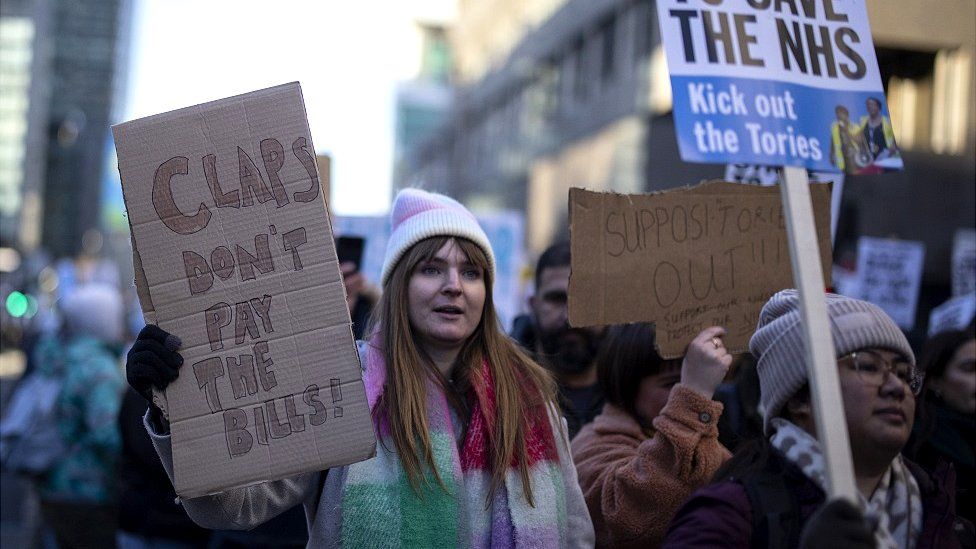ARTICLE AD BOX
 Image source, TOLGA AKMEN/EPA-EFE/REX/Shutterstock
Image source, TOLGA AKMEN/EPA-EFE/REX/Shutterstock
By Chris Mason
Political editor, BBC News
There were glimmers of hope on both sides last week that a deal could be done to end the health service strikes.
But the tentative sense of optimism that existed after talks between the unions and Health Secretary Steve Barclay has evaporated.
Speaking privately to figures within the health unions, there is a growing exasperation.
"In 25 years of negotiations, I've never seen anything like it" says one. "They dress up a meeting as dialogue, as negotiation, and it's nothing of the sort."
"Why are they dragging this out?" another asks. "The NHS is a special case."
A senior figure in another union predicts a deal will have to be done in the NHS, because no government can win a popularity contest with nurses and ambulance staff.
But another factor that has provoked anger is the government's repeated public criticism of ambulance services when it comes to providing a basic service on strike days.
'Digging in'
Ministers have cited the difficulty in signing off what are known as "derogations" to justify their planned new law on introducing what they call minimum safety levels when there is industrial action.
But union sources counter that ambulance services are organised regionally, and so the only way to organise strike day preparation is regionally, even if that takes longer.
Inside the Department of Health, I hear their systems have coped on strike days, the mitigations put in place have worked, albeit in providing a vastly reduced service.
One source talks down a souring of relations, but characterises it like this: "Things haven't cooled. They just haven't really changed."
The source adds that the unions are "digging in" and "announcing further strike dates makes it less likely there'll be a collegiate atmosphere".
'Busy elves'
There is a hope that given the prime minister's priority to reduce waiting lists, the Treasury might look favourably on the need for more money.
"They are busy elves in the Department of Health," smiles a source elsewhere in Whitehall.
Those in the Treasury argue their focus is on cutting inflation and there will be no new money for striking workers.
Instead there is what is called a "Efficiencies and Savings Review" going on across government.
If departments can find savings from their existing budgets, they can spend them as they see fit.
In other words: cut something you're already spending money on, and you can spend that money on pay. But you're not getting any new money.
Others at the centre of government make a blunt economic and political calculation: if a deal is done with one union or one sector, all the others will demand the same - and that will cost a fortune.
Enter - at one step removed from the government - the Rail Delivery Group, representing train companies, offering the RMT union a minimum pay rise of 9% over two years and guaranteed no compulsory redundancies until at least the end of next year.
The union is considering the offer.
Right now, it's a safe bet that across plenty of sectors this winter, there are plenty more strikes to come.

 2 years ago
25
2 years ago
25








 English (US) ·
English (US) ·